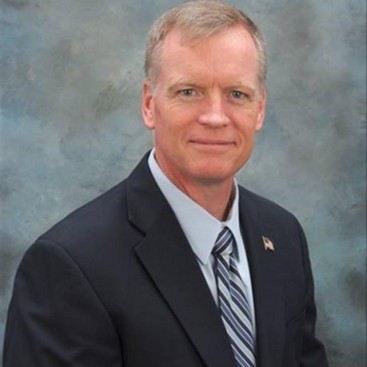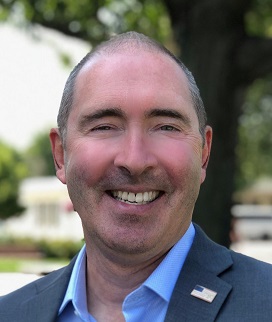Good morning everyone:
Week 2 of the 2020 legislative session was hectic, and Week 3 promises to escalate with more hearings on Medicaid expansion, not to mention hearings on sports betting, protections against discrimination for hairstyle and a constitutional amendment stopping transfers from the highway fund.
And, of course, everyone will be watching for the next move on the constitutional amendment on abortion. Does it start in the Senate? Or does it start in the House? And are there enough votes to get it passed? The longer this dance goes on, some believe, may be an indicator of its uphill chances of passing.
And the week ends on a climactic note with two big debates at the Kansas Republican Party Convention, one featuring the GOP candidates for U.S. Senate and the other for the three women running for Congress in the 3rd District.
In short, we don’t expect much sleep this week, and our personal life will be in shambles. It’s only a matter of time before our mobile office at the Ramada has the feel of a giant recycling bin littered with legislative bills and testimony.
Now onto the significant stories we published last week and the news you may have missed but need to know….
- The Kansas attorney general is backing legislation that would limit local governments to bring lawsuits on a contingency basis.
- The banks and credit unions are colliding over legislation on tax policy. The bill potentially could mean millions in savings to the banks. The banks say it will mean less expensive loans. The credit unions are skeptical.
- In maybe one of the most significant political developments of the week, state Rep. Stephanie Clayton of Overland Park bowed out of the Democratic primary for state Senate in District 7. She will run for a fifth term in the House.
- Republican U.S. Senate candidate Kris Kobach replaced his campaign manager with a family law attorney from New York City. It turns out the new campaign manager was recommended by conservative celebrity pundit Ann Coulter.
- The state Supreme Court dismissed a lawsuit seeking to force the Legislature to spend more money on judicial salaries. It was a move warmly greeted by the House speaker and the attorney general.
- Senate Minority Leader Anthony Hensley called out the secretary of state for not moving fast enough to implement a new law allowing voters to cast a ballot anywhere in the county where they live.
- Republican leadership in the House unveiled its agenda for the 2020 legislative session, including tax benefits for first-time home buyers and seniors.
- Attorney General Derek Schmidt made the case for banning e-cigarettes in public indoor locations. But he and other supporters of an indoor ban ran into some tough questions from a Democratic legislator.
Now onto other news….
Candidate self-funding
Legislative candidates put about a half-million dollars into their own campaigns last year, state campaign records show.
Overall, legislative candidates running for the House and Senate raised about $3.2 million in monetary contributions in 2019 — about $1.7 million for Senate candidates and about $1.5 million for House candidates.
About $515,000 came from the candidates, including roughly $271,000 in the House and $243,000 in the Senate.
Most of the self-funding was concentrated among four candidates, including state Sen. Kevin Braun, who put $105,000 into his campaign, and Rep. J.R. Claeys, who deposited $100,000 into his account.

Braun, a Republican, is running against Democrat Jeff Pittman for the Senate District 5 seat. Pittman loaned his campaign $7,500 at the end of 2019.
Claeys, a Republican, will face the winner of the Democratic primary pitting Ryan Holmquist against Phil Black.
Overall, Braun reported raising about $126,000 last year, of which $105,000 came from loans he made to the campaign in November and December.
“If you’re serious about the race, you have to put in the kind of money it takes to win the race,” Braun said in an interview.
“Putting that money into the campaign shows that I am a very serious candidate,” he said. “I plan to use every penny that’s necessary to win this race.”
Since he was appointed to the position in 2018, Braun said he has not had the same amount of time as his peers to raise money for a Senate race.
“I want to make sure that’s not a barrier to my success.”
Claeys reported raising $106,400, of which $100,000 was a loan he made to his campaign in December.
He said the loan was nothing new. He gave $300,000 to his campaign for secretary of state in 2010.
“That’s what you have to do in these races if you’re just not going out there and peddling to PACs,” he said. “You have to invest in yourself.”

Self-funding, he said, sends a message that he’s willing to spend the money needed to win the race.
Democratic state Rep. Tim Hodge reported raising $60,125 last year, including a $50,000 loan he made to the campaign at the end of December.
Like the others, Hodge said the loan should speak to his commitment to get reelected to his House seat.
“The other side will stop at nothing and will finance campaigns to a really high level to the point where they’ll just buy it for their candidate,” he said.
He said the loan should let his challengers know what they would face if they try to spend him into submission.
Republican state Sen. John Doll is facing two primary challengers later this year. He raised $70,900 last year, including a $50,000 loan he made to the campaign at the end of November.
He said this is his last campaign for the state Legislature. He said he doesn’t want to worry about finances this go-around.
The personal loan to the campaign, he said, puts him at ease going into the election. He faces primary opposition from Finney County Commissioner Lon Pishny and former state Rep. Reynaldo Mesa.
“I’m tired of asking my friends and my neighbors and my family for money,” Doll said. “It’s hard to ask people for money and then do it over and over and over again.”
By comparison, the last time the Senate and House were up for election in the 2016 cycle, candidates and their spouses put about $942,000 in monetary contributions into their own campaigns.
That was down from 2012, when candidates put more than $1.1 million into their own campaigns.
Digital sale tax controversy
Gov. Laura Kelly’s proposal to apply sales taxes to digital products should not have surprised anyone who follows what goes on at the Capitol.
The idea of taxing digital products was floated in December, when the governor’s tax council recommended it as part of a series of new tax polices, including a refundable food sales tax credit.
Nevertheless, the political world seemed to be caught flat-footed when the idea was included in her proposed budget recently.
So much so that it grabbed the attention of the Republican Governors Association, which sent out a statement last week denouncing the idea.
“Democratic governors have long been tax hiking trailblazers, leading the way on proposing some of the most asinine tax proposals that often leave their constituents dumbfounded,” the RGA said in an email last week.
“Their ingenuity in finding new ways to take money out of taxpayers’ pockets is unrivaled, including tax hikes on everything short of breathing (so far), including rain and drinking water.”
Meanwhile, GOP leadership is promising to kill the proposal, which is estimated to raise almost $30 million for state and local government combined. Here’s coverage from The Associated Press’ John Hanna.
Democratic women energized for 2020
Kansas Democrats may have keyed into something with so many women running for the Kansas Legislature this year.
Two years ago, more than a half-million Kansas women cast ballots in the general election, the highest number in a midterm general election since at least 2006.
It helped elect Sharice Davids to Congress and Laura Kelly as governor in a year when a historic number of women were elected to Congress nationally.
Now, Democrats have 15 women running for the Kansas statehouse in Johnson County alone.
New national polling out last week shows that Democratic women may be more energized this year than in recent elections.
The survey — cosponsored by American University’s Women & Politics Institute and the Barbara Lee Family Foundation — found that Democratic women voters expect to be more involved in politics and campaigns in 2020.
The poll of 800 likely 2020 presidential voters showed that 39% of Democratic women expect to be more involved in politics this year than in the last few years.
By comparison, 23% of Republican women said they would be more involved this year. Twenty-eight percent of independent women said they would be more involved this year as well.
Further, the poll showed that 40% of millennial women between the ages of 18 and 34 said they would be more involved.
The same percentage of women of color also said they would be more engaged this year.
Here is a link to the survey, the polling memo and the news release announcing the survey results.
Race for GOP Committeewoman
A new twist to report in the race for Kansas’ representative on the Republican National Committee.
Kim Borchers has picked up the endorsement of former Gov. Sam Brownback’s wife, Mary, in a bid for Republican National Committeewoman.

Mary Brownback on Saturday sent out an email endorsing Borchers, who worked for Sam Brownback when he was governor.
Borchers worked for the governor as his deputy chief of staff after starting as his appointments director.
Borchers “is a warrior for her beliefs and operates from the heart,” Mary Brownback wrote in the email.
“Kim is committed to conservative values. She has defended and advanced them for many years. She will continue to fight for them as Kansas Republican National Committeewoman,” she wrote.
Borchers is running for the position against Republican activists Diane Macheers and Alana Roethle.
The winner will replace Helen Van Etten, who is stepping down as a national committeewoman after serving three terms starting in 2008.
The 180-member Republican state committee will vote on Van Etten’s successor at the state convention next weekend in Olathe.
Meat labeling
Lawmakers last week heard testimony on a bill banning producers of plant-based meats from describing their products as beef, pork, steak and hamburger, among other terms, without a disclaimer.
Supporters of the bill from the livestock industry say it would guarantee fair competition when people are increasingly turning to alternative meat products. They also say the bill would spell out to consumers what products have meat.
Opponents says it infringes on their First Amendment rights by establishing how the products should be marketed.
Here’s the coverage from McClatchy, the Capital-Journal, Kansas News Service and The Associated Press.
County GOP official seeks investigation
The executive director of the Sedgwick County Republican Party has asked state ethics officials to investigate how the county Democratic Party is accounting for the money it raises and spends.
Ben Sauceda sent an email to the state Ethics Commission on Jan. 15, accusing the county Democrats of misrepresenting activity on campaign finance reports. He has asked for an audit of the party’s campaign finance reports.
The report lists thousands of dollars from donors who were unknown.
The report also shows thousands of dollars in expenses that are not itemized because they are $50 or less.
“A quick cross reference shows they have received and spent funds well in excess of what they have reported as under $50 per transaction or claim they cannot identify their donors,” Sauceda wrote in his complaint.
However, state ethics officials warned that the request is complex and that the results of an audit might never be disclosed.
“From your description, the situation is complicated, requiring time to pour over multiple reports and the drawing of cross references and assumptions which may or may not support a violation,” wrote Brett Berry, general counsel for the Ethics Commission.
“If the commission determines to audit or investigate a given situation, that process is statutorily confidential,” he wrote. “We would not be able to disclose the process or its conclusions.”
U.S. Senate race poll details
A poll out last week showed Congressman Roger Marshall and former Kansas Secretary of State Kris Kobach locked in a dead heat for the U.S. Senate race.
Senate President Susan President Susan Wagle was a distant third. The poll of 1,246 likely Republican primary voters didn’t name another candidate, only asking those surveyed if they would pick someone else.
For political junkies, here are the cross tabs for the poll paid for by the Keep Kansas Great PAC, which reportedly has endorsed Marshall. The poll was done by the Kansas City firm co/Efficient.
The poll had Marshall leading with 29%, followed by Kobach at 28% and Wagle at 6%. “Someone else” was at 9%. Undecided was at 28%.
Kobach was viewed favorably by 47% of those polled, compared to 32% unfavorably and 21% with no opinion. He was particularly favored by Republicans supporting Trump and who were Christian.
Marshall’s favorability was at 41%, while he was viewed unfavorably by 9%. Half of those polled had no opinion about Marshall.
The poll also found that Wagle was not performing well among female voters, even as she has talked up her advantage as the only female candidate in the race.
She has said she thinks the only candidate who can beat a liberal female candidate is a conservative female candidate.
However, Wagle was only getting support from 5% of female primary voters, compared to 29% who said they supported Marshall and 25% who backed Kobach. Thirty-one percent of female voters said they were undecided.
New Watkins address
A late news item from Friday found Republican Congressman Steve Watkins changing his home address again.
The Associated Press reported that Watkins now reports his address as a Topeka apartment after originally listing his address as the office for the apartment complex.
Watkins’ address has been a tricky issue after it was reported that he had listed a UPS Store as his address on a voter registration form.
Authorities are investigating whether Watkins violated any election laws when he first reported using the UPS address in Topeka instead of his home.
Changing Senate races
Conservative commentator Bryan Pruitt announced last week that he was dropping out of the Republican primary for the U.S. Senate so he could run for the state Senate instead.

Pruitt’s run for federal office never gained much momentum in a field that includes Congressman Roger Marshall, former Kansas Secretary of State Kris Kobach, Senate President Susan Wagle and former Johnson County Commissioner Dave Lindstrom.
Pruitt had only raised about $6,400 for a race that will cost many millions of dollars.
He says he now plans to run for the Senate District 22 seat currently held by Democrat Tom Hawk.
But he will face primary opposition from Army veteran Craig Bowser, who has already amassed $34,200 for a Senate race.
Hawk is sitting on a campaign fund totaling about $60,000.
Paying for election recounts
Last week, the Senate elections committee took up legislation requiring the state to pay for local general election recounts if they’re decided by less than a half percent of the votes cast.
Currently, the cost is paid by the person seeking the recount if it doesn’t change the outcome of the election. Here’s coverage of last week’s hearing from the Capital-Journal as well as the fiscal note for the bill.













